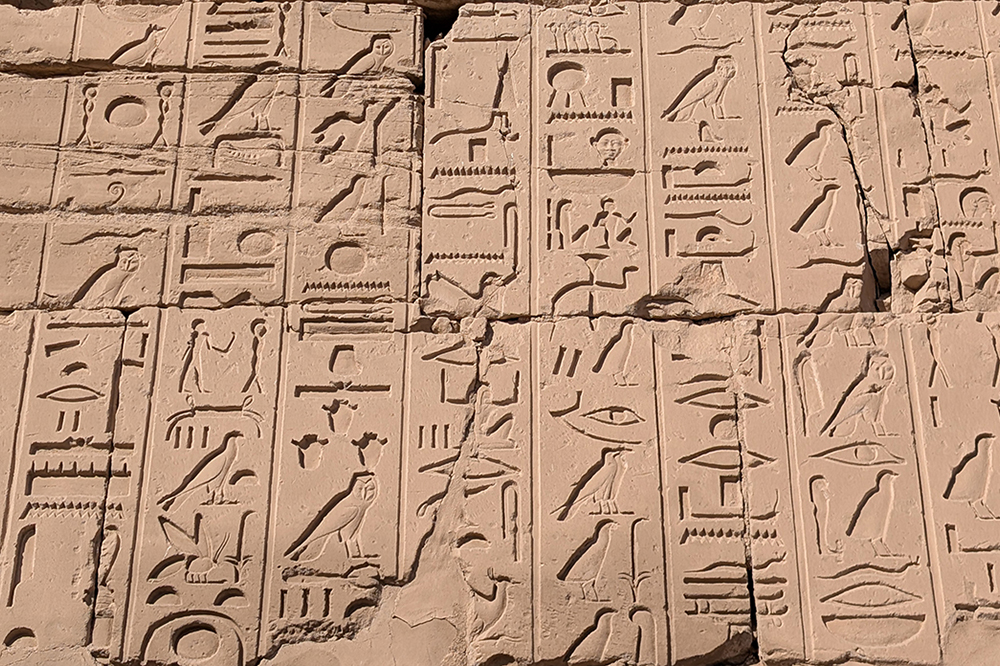The paper “Miss Tammy as a Use Case for Moral Prompt Engineering” by Myriam Rellstab and Oliver Bendel from the FHNW School of Business was accepted at the AAAI 2025 Spring Symposium “Human-Compatible AI for Well-being: Harnessing Potential of GenAI for AI-Powered Science”. It describes the development of a chatbot that can be available to pupils and de-escalate their conflicts or promote constructive dialogues among them. Prompt engineering – called moral prompt engineering in the project – and retrieval-augmented generation (RAG) were used. The centerpiece is a collection of netiquettes. On the one hand, these control the behavior of the chatbot – on the other hand, they allow it to evaluate the behavior of the students and make suggestions to them. Miss Tammy was compared with a non-adapted standard model (GPT-4o) and performed better than it in tests with 14- to 16-year-old pupils. The project applied the discipline of machine ethics, in which Oliver Bendel has been researching for many years, to large language models, using the netiquettes as a simple and practical approach. The eight AAAI Spring Symposia will not be held at Stanford University this time, but at the San Francisco Airport Marriott Waterfront, Burlingame, from March 31 to April 2, 2025. It is a conference rich in tradition, where innovative and experimental approaches are particularly in demand.
22 Chatbots and Voice Assistants
Since 2013, Oliver Bendel has developed 22 chatbots and voice assistants together with his students or colleagues. They can be divided into three categories. The first are moral and immoral chatbots (i.e., forms of moral machines) and empathic voice assistants. The second are chatbots (some with voice output) for dead, endangered, or extinct languages and idioms. The third are pedagogical chatbots and chatbots that give recommendations and advice. Some of the projects lasted between four and six months. Most of the GPTs were created in just a few hours. Exceptions are Miss Tammy and Animal Whisperer, which took several months to build with the help of prompt engineering and retrieval-augmented generation (RAG). Articles and book chapters have been published on many of the projects. The names of the developers can be found in these. A few chatbots made it into the media, such as GOODBOT (for which the preparatory work began in 2012), LÜGENBOT aka LIEBOT, and @llegra.
kAIxo says “kaixo”
The final presentation of the “kAIxo” project took place on January 9, 2025. Nicolas Lluis Araya was the project team member. The FHNW School of Business has been developing chatbots for dead, endangered, and extinct languages for several years. A well-known example is @llegra, a chatbot for Vallader. In the spring of 2024, Oliver Bendel tested the reach of GPTs for endangered languages such as Irish (Irish Gaelic), Maori, and Basque. According to ChatGPT, there is a relatively large amount of training material for them. On May 12, 2024 – after Irish Girl and Maori Girl – a first version of Adelina, a chatbot for Basque, was created. It was later improved in a second version. As part of the “kAIxo” project (the Basque “kaixo” corresponds to the English “hello”), the chatbot kAIxo was built, which speaks Basque. Its purpose is to keep users practicing written or spoken language or to develop the desire to learn the endangered language. The chatbot is based on GPT-4o and Gemini 1.5 Flash, and the user can select his or her preferred large language model (LLM). Retrieval-augmented Generation (RAG) plays a central role. The ChatSubs dataset is used, which contains subtitles of movie dialogs in Basque. Thanks to a text-to-speech engine, the chatbot can also speak. At the final presentation, Nicolas Lluis Araya presented a working prototype that can be accessed via www.kaixo.ch.
Cleop@tr@ Visits the Karnak Temple
Cleop@tr@ was invented by Prof. Dr. Oliver Bendel in May 2024. It is a GPT that specializes in Egyptian. It is also familiar with the culture and history of ancient Egypt. Since 2012, the technology philosopher and information systems specialist has been building chatbots and voice assistants – partly with his students and partly on his own. These have been discussed by the media and found interesting by NASA. Under his supervision, Karim N’diaye developed the chatbot @ve for Latin, Dalil Jabou the voice-enhanced chatbot @llegra for Vallader, and Nicolas Lluis Araya the voice-enhanced chatbot kAIxo for Basque. For some time now, he has been testing the reach of GPTs for endangered languages such as Irish, Maori, and Basque. He is also investigating the potential for extinct languages such as Egyptian (Cleop@tr@) and Akkadian (H@mmur@pi). The GPTs do not readily communicate in hieroglyphics and cuneiform, but they can certainly represent and explain signs of visual languages. It is even possible to enter entire sentences and then ask how they can be improved or what they mean. In December 2024, Oliver Bendel tested his Cleop@tr@ in the Karnak Temple in Luxor. She was able to provide coherent explanations and translations for several inscriptions on columns and walls. However, further tests also revealed clear errors. Ultimately, Egyptologists will have to assess how reliable it is.
The kAIxo Project
The interim presentation of the kAIxo project took place on 11 November 2024. Nicolas Lluis Araya is the project collaborator. Chatbots for dead, endangered, and extinct languages are being developed at the FHNW School of Business. One well-known example is @llegra, a chatbot for Vallader. Oliver Bendel recently tested the reach of GPTs for endangered languages such as Irish (Irish Gaelic), Maori, and Basque. According to ChatGPT, there is a relatively large amount of training material available for them. On 12 May 2024 – after Irish Girl and Maori Girl – a first version of Adelina, a chatbot for Basque, was created. It was later improved in a second version. As part of the “kAIxo” project (the Basque “kaixo” corresponds to the English “hello”), the chatbot or voice assistant kAIxo is being built to speak Basque. Its purpose is to keep users practising written or spoken language or to develop the desire to learn the endangered language. The chatbot is based on GPT-4o. Retrieval-Augmented Generation (RAG) plays a central role. A ChatSubs dataset is used, which contains dialogues in Spanish and three other official Spanish languages (Catalan, Basque, and Galician). Nicolas Lluis Araya presented a functioning prototype at the interim presentation. This is now to be expanded step by step.
Start of the kAIxo Project
Chatbots for dead, endangered, and extinct languages are being developed at the FHNW School of Business. One well-known example is @llegra, a chatbot for Vallader. Oliver Bendel recently tested the reach of GPTs for endangered languages such as Irish (Irish Gaelic), Maori, and Basque. According to ChatGPT, there is a relatively large amount of training material for them. On May 12, 2024 – after Irish Girl and Maori Girl – a first version of Adelina, a chatbot for Basque, was created. It was later improved in a second version. As part of the kAIxo project (the Basque “kaixo” corresponds to the english “hello”), the chatbot or voice assistant kAIxo is to be developed that speaks Basque. The purpose is to keep users practicing written or spoken language or to develop the desire to learn the endangered language. The chatbot should be based on a Large Language Model (LLM). Both prompt engineering and fine-tuning are conceivable for customization. Retrieval Augmented Generation (RAG) can play a central role. The result will be a functioning prototype. Nicolas Lluis Araya, a student of business informatics, has been recruited to implement the project. The kick-off meeting will take place on September 3, 2024.
Teaching and Learning with GPTs
In the spring semester of 2024, Prof Dr Oliver Bendel integrated virtual tutors into his teaching. These were ‘custom versions of ChatGPT’, so-called GPTs. Social Robotics Girl was available for the elective modules on social robotics, created in November 2023, and Digital Ethics Girl from February 2024 for the compulsory modules “Ethik und Recht” and ‘Ethics and Law’ within the Wirtschaftsinformatik and Business Information Technology degree programmes (FHNW School of Business) and “Recht und Ethik” within Geomatics (FHNW School of Architecture, Construction and Geomatics). The virtual tutors have the “world knowledge” of GPT-4, but also the specific expertise of the technology philosopher and business information scientist from Zurich. It has been shown that the GPTs can provide certain impulses and loosen up the lessons. They show their particular strength in group work, where students no longer have to consult their lecturer’s books – which is hardly useful when there is a lot of time pressure – but can ask them specific questions. Last but not least, there are opportunities for self-regulated learning. The paper “How Can GenAI Foster Well-being in Self-regulated Learning?” by Stefanie Hauske and Oliver Bendel was published in May 2024 – it was submitted to the AAAI Spring Symposia in December 2023 and presented at Stanford University at the end of March 2024.
Maori Girl Can Speak and Write Maori
Conversational agents have been the subject of Prof. Dr. Oliver Bendel’s research for a quarter of a century. He dedicated his doctoral thesis at the University of St. Gallen from the end of 1999 to the end of 2022 to them – or more precisely to pedagogical agents, which would probably be called virtual learning companions today. He has been a professor at the FHNW School of Business since 2009. From 2012, he mainly developed chatbots and voice assistants in the context of machine ethics, including GOODBOT, LIEBOT, BESTBOT, and SPACE THEA. In 2022, the information systems specialist and philosopher of technology then turned his attention to dead and endangered languages. Under his supervision, Karim N’diaye developed the chatbot @ve for Latin and Dalil Jabou the chatbot @llegra for Vallader, an idiom of Rhaeto-Romanic, enhanced with voice output. He is currently testing the range of GPTs – “customized versions of ChatGPT”, as OpenAI calls them – for endangered languages such as Irish (Irish Gaelic), Maori, and Basque. According to ChatGPT, there is a relatively large amount of training material for them. On May 9, 2024 – one week after Irish Girl – a first version of Maori Girl was created. At first glance, it seems to have a good grasp of the Polynesian language of the indigenous people of New Zealand. You can have the answers translated into English or German. Maori Girl is available in the GPT Store and will be further improved over the next few weeks
Saving Languages with Language Models
On February 19, 2024, the article “@llegra: a chatbot for Vallader” by Oliver Bendel and Dalil Jabou was published in the International Journal of Information Technology. From the abstract: “Extinct and endangered languages have been preserved primarily through audio conservation and the collection and digitization of scripts and have been promoted through targeted language acquisition efforts. Another possibility would be to build conversational agents like chatbots or voice assistants that can master these languages. This would provide an artificial, active conversational partner which has knowledge of the vocabulary and grammar and allows one to learn with it in a different way. The chatbot, @llegra, with which one can communicate in the Rhaeto-Romanic idiom Vallader was developed in 2023 based on GPT-4. It can process and output text and has voice output. It was additionally equipped with a manually created knowledge base. After laying the conceptual groundwork, this paper presents the preparation and implementation of the project. In addition, it summarizes the tests that native speakers conducted with the chatbot. A critical discussion elaborates advantages and disadvantages. @llegra could be a new tool for teaching and learning Vallader in a memorable and entertaining way through dialog. It not only masters the idiom, but also has extensive knowledge about the Lower Engadine, that is, the area where Vallader is spoken. In conclusion, it is argued that conversational agents are an innovative approach to promoting and preserving languages.” Oliver Bendel has been increasingly focusing on dead, extinct and endangered languages for some time. He believes that conversational agents can help to strengthen and save them.
A Conversational Agent as a Superhero
Researchers at the University of Washington have developed a web app to help children develop skills such as self-awareness and emotional management. They have published their findings in their paper “Self-Talk with Superhero Zip: Supporting Children’s Socioemotional Learning with Conversational Agents”. From the abstract: “Here, we examine whether children can learn to use a socioemotional strategy known as ‘self-talk’ from a conversational agent (CA). To investigate this question, we designed and built ‘Self-Talk with Superhero Zip,’ an interactive CA experience, and deployed it for one week in ten family homes to pairs of siblings between the ages of five and ten … We found that children could recall and accurately describe the lessons taught by the intervention, and we saw indications of children applying self-talk in daily life.” (Fu et al. 2023) The paper can be downloaded at dl.acm.org/doi/abs/10.1145/3585088.3589376 (Image: DALL-E 3).









